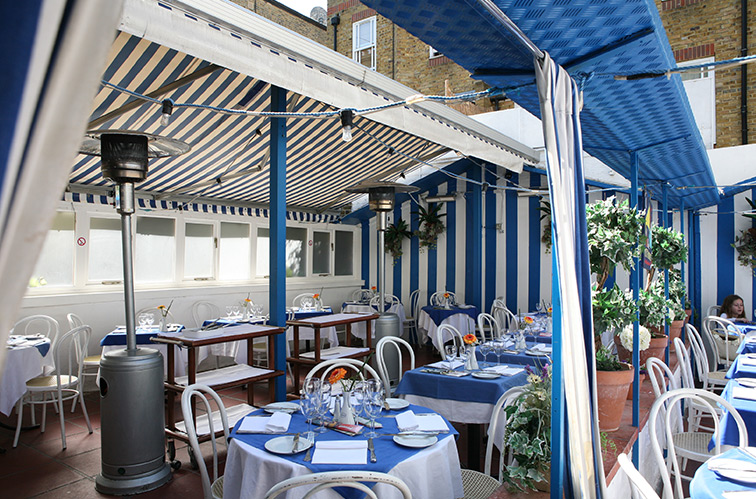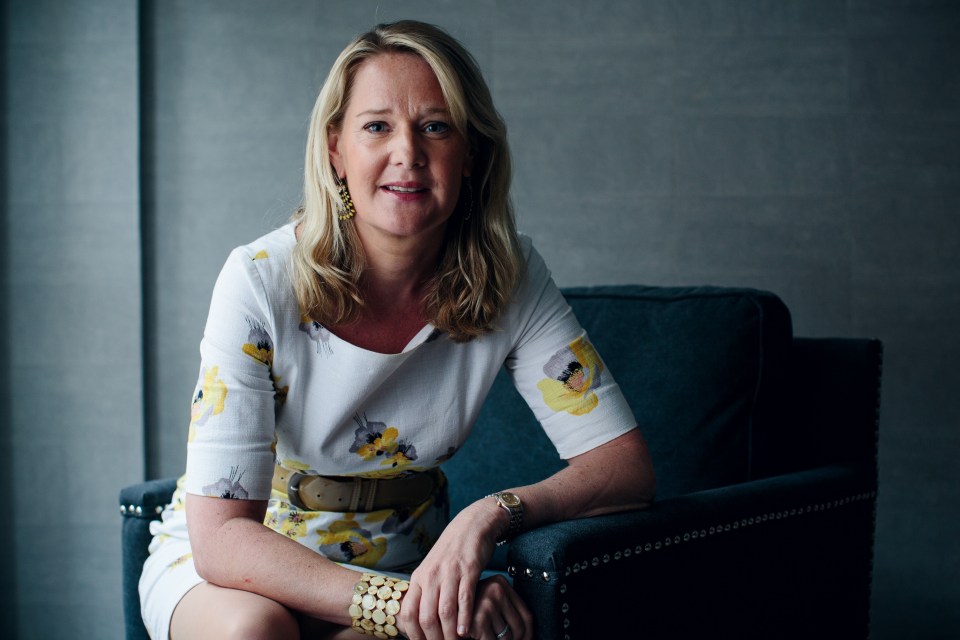Inside story: How Cavendish became the City’s newest bank

In late January, two bankers sat across from each other at the 57-year-old Chelsea haunt La Famiglia for a tete-a-tete over wine and dinner.
The traditional Tuscan eatery is something of a hotspot for celebs and off-duty City types – a pre-sanctions Roman Abrahamovic even used to entertain Jose Mourinho there over a bowl of pasta – but these bankers had business on the agenda.
Julian Morse and John Farrugia, then-bosses of Cenkos Securities and Finncap, were on something like a screen-test-stroke-first-date to see whether they could carve out a future together as colleagues.
“I said to my chairperson, post this dinner I’ll know straight away whether I want to do this or not,” Farrugia tells City A.M., alongside Morse, in an interview.
Farrugia had just helped rebuff an unsolicited takeover swoop from City broker Panmure Gordon and spent his Christmas drawing up a list of potential partners for a new deal.
Cenkos was top of the list, he says. And they hit it off.
“I walked out of the restaurant and said ‘let’s do this’.” He looks across to Morse. “I hope Julian said the same.”

The two firms just last week completed their move into Finncap’s plush HQ near St Paul’s as Cavendish.
Signage in the reception has already been stripped down and replaced, Farrugia carries the new branded stationery stash, and staff on the front desk say they’re now getting the name right when they answer the phone (though a stack of empty boxes still point to quite how new its new tenants are).
For the moment, all seems harmonious at the City’s newest investment bank.
“It’s not one side dominating the way we do things,” Morse adds. “Apart from the Cenkos people now enjoy a nice building compared to our old dilapidated one.”
Safety in scale?
The £43m all-share tie-up between the two firms came amid a flurry of consolidation in the mid-market banking sector this year, as smaller lenders reel from a sharp drop off in deals and listings.
A host of London’s banks and brokerages have been hammered by the volatility of the past 18 months. In its final set of standalone full year results in July, Finncap swung to a loss of £1.7m from a profit of £9.6m a year prior, as revenues cratered some 37 per cent.
Peel Hunt said it fell to a loss of £1.49m from a profit of £41.2m, and Numis, which was itself picked off by Deutsche Bank in April, said its half-year profits in May had tumbled 55 per cent to £6m.
Deals like Cavendish have been regarded with some scepticism as a largely defensive play in the Square Mile as smaller banks and brokerages hunt for safety in scale. But Farrugia is quick to dismiss the suggestion.
“I want to put that to bed right now,” he says. “If you looked at both our balance sheets independently, they were both very strong.”
He points to the failure of the Panmure takeover as proof Finncap wasn’t willing to jump into the arms of the first bidder.
“If we were weak, we would’ve gone through with that,” he adds.
Morse concedes “the synergies help” in the current environment. But he says he had already floated the idea of a Finncap merger to his board some two-years prior, and was “annoyed” when initial news of a Panmure deal broke.
When that deal fell apart over a failure to strike “mutually acceptable terms”, he pounced.
John holds me accountable to my side of the business, I hold him accountable
Double-act
The two chiefs now preside over one of the bigger players in the UK’s mid market sector with 200 people across London and Edinburgh offices and around 220 quoted clients, which it says is the largest retained client base among its peers.
Morse and Farrugia have divided up their roles for clearer lines of separation. Morse heads the firm’s capital markets offer, while Farrugia oversees the private markets, debt advisory and M&A business.
The double-boss model has proved a popular one in the flurry of deals this year. Numis has been led by co-chiefs since 2016 who have both stayed in post after the Deutsche deal.
“John holds me accountable to my side of the business, I hold him accountable to that side of the business, which basically, I think just drives performance as well,” Morse adds.
Both chiefs have a similarly clear-headed view of the current downturn but say they’re already seeing signs of a recovery.

Farrgugia, who cut his teeth as an M&A banker, says the market is now wide open with “whitespace” in the mid-market, and Morse adds that new IPO interest is already beginning to trickle through for the end of this year and the start of 2024 after a barren period.
“We’ve had a number of IPOs come in [last week] – stuff that we’ve been working on for a while – so those will be coming probably early next year […] and there’ll be a number of deals in the fourth quarter,” he says.
Rebound
Behind the scenes, dealmakers are gearing up for action again they say. Much of the media narrative has doubled down on the doom and gloom this year as IPOs and deals evaporate, but Farrugia says it does not reflect what’s happening on the ground.
“I ignore it,” he says. “You can only be analysed by your own successes or failures.
“The press can continue writing about doom and gloom. Go ahead – doesn’t help the overall economy by the way – but we will continue driving our own business forward and people will look at us hopefully in a couple of years and see the changes we’ve made.”
Morse, in superman cufflinks, says he has been playing a more active role in the reform conversation. Efforts by the London Stock Exchange to corral the industry into action are “really encouraging”, he says, and the first time “people from all parts of the industry, from investors, regulators, exchanges, brokers, advisors” have been in the same room.

For now though, the pair seem like they have enough on their plate before trying to save the wider industry.
They have teams to merge and phones to hit as they hunt out deals as they begin to tick up again. And the two bosses are enjoying something of a honeymoon stage.
The “stars have aligned”, says Farrugia.
Farrugia and Morse’s kids, along with Finncap founder Sam Smith, are coincidentally in the same class at school. They got married in the same year, one weekend apart, at the same location, and their wives share the same birthdays.
“You kind of go ‘Oh, I’ve got a feeling this may work’,” he adds.